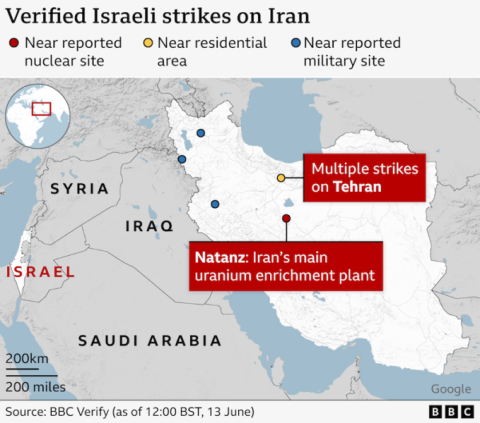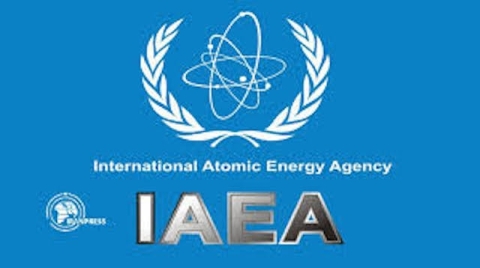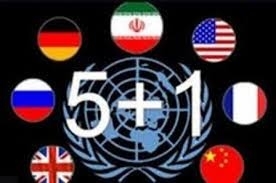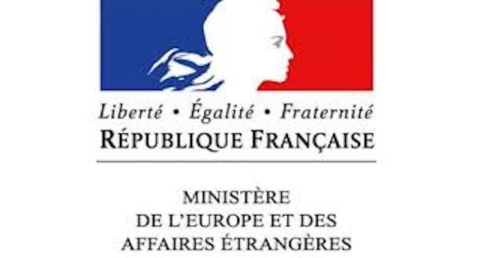Politics
ESCALATION IN ISRAEL/IRAN CONFLICT RAISES THE NUCLEAR RISKS & GLOBAL REACTION
JOINTCOMMUNIQUE FRANCE, GERMANY, UK, EU

European Council flag (Source: Rahma Sophia Rachdi, Jedi Foster)
USPA NEWS -
After 9 consecutive days of Israeli airstrikes targeting Iranian military and nuclear sites (Natanz, Fordow, Arak), including more than 60 fighter jets, nuclear escalation concerns have surged. The International Atomic Energy Agency (IAEA) has confirmed contamination at Natanz and flagged “grave consequences” if a reactor like Bushehr is struck. Director General Top Diplomat, Rafael Grossi who serves as Director General of the International Atomic Energy Agency (IAEA) warned that "armed attacks on nuclear facilities could result in radioactive releases with grave consequences" and emphasized the need for “maximum restraint” (Source, IAEA)
French President Macron was the first leader to propose a multilateral initiative, based on pragmatism policy, and convened a national security council in response and urged diplomatic solutions, calling for “maximum restraint” while affirming Israel’s right to self-defense, but warning against targeting non-military sites. He’s leading a European initiative, proposing to suspend Iran’s uranium enrichment and negotiate ballistic missile limits alongside a pledge to cease funding terrorism and recently (yesterday) asked Israel to stop the strike
French President Macron was the first leader to propose a multilateral initiative, based on pragmatism policy, and convened a national security council in response and urged diplomatic solutions, calling for “maximum restraint” while affirming Israel’s right to self-defense, but warning against targeting non-military sites. He’s leading a European initiative, proposing to suspend Iran’s uranium enrichment and negotiate ballistic missile limits alongside a pledge to cease funding terrorism and recently (yesterday) asked Israel to stop the strike
French President Emmanuel Macron was the first leader to propose a multilateral initiative, based on pragmatism policy, and convened a national security council in response and urged diplomatic solutions, calling for “maximum restraint” while affirming Israel’s right to self-defense, but warning against targeting non-military sites. He’s leading a European initiative, proposing to suspend Iran’s uranium enrichment and negotiate ballistic missile limits alongside a pledge to cease funding terrorism and recently (yesterday) asked Israel to stop the strikes, as they kept bombing Iran. From the other side of the Atlantic, US President, showed a window amid mixed signals, when it comes to finding a diplomatic solution to this hot spot
President Donald Trump has granted a two-week diplomatic window before deciding whether to intervene while emphasizing that Iran “must surrender unconditionally,” though suggest Iran is not actively seeking nuclear weapons, despite Israeli assertions…
President Donald Trump has granted a two-week diplomatic window before deciding whether to intervene while emphasizing that Iran “must surrender unconditionally,” though suggest Iran is not actively seeking nuclear weapons, despite Israeli assertions…
The European Commission remains in a balancing Act position, over President Ursula von der Leyen echoed Macron, affirming Israel’s right to defend itself, but emphasized de-escalation and respect for international law. Though her stance exceeded the more cautious EU consensus, which hesitated to explicitly endorse Israel’s actions—her message underscored Europe’s diplomatic dilemma (Source Euronews, European Commission, French Presidency)
THE IAEA CONTEXT AND REASONS OF THE BALANCE
Actor Position
IAEA Warns of radiological risk; calls for utmost restraint
France ( Emmanuel Macron) Supports restraint, defends self defense, initiates EU diplomacy
U.S. ( Donald Trump) Holds military option open; offers diplomatic window
EU ( Ursula Von der Leyen) Supports Israel’s right to self-defense but urges de-escalation
Actor Position
IAEA Warns of radiological risk; calls for utmost restraint
France ( Emmanuel Macron) Supports restraint, defends self defense, initiates EU diplomacy
U.S. ( Donald Trump) Holds military option open; offers diplomatic window
EU ( Ursula Von der Leyen) Supports Israel’s right to self-defense but urges de-escalation
With Iran missile strikes ongoing and Israel threatening further nuclear related targets, the risk of a wider conflagration is rising. France’s push for a nuanced European diplomatic response aims to avoid catastrophic escalation. Yet the U.S.’s ambiguous posture and internal EU divisions make a cohesive global strategy elusive. The next two weeks will be pivotal: either diplomacy prevails, or the conflict risks spiraling into an unprecedented nuclear crisis.
We hereby publish in full the official statement as released by the Foreign Ministers of France, Germany, the United Kingdom, and the High Representative of the European Union following their meeting with their Iranian counterpart in Geneva on June 20, 2025
STATEMENT BY FOREIGN MINISTERS OF AFFAIRS OF FRANCE, GERMANY, THE UK, EU FOLLOWING AFTR THEIR MEETING WITH IRANIAN COUNTERPART IN GENEVA
The Foreign Ministers of France, Germany, and the United Kingdom, together with the High Representative of the European Union, met with their Iranian counterpart in Geneva on Friday, June 20, 2025.
They expressed their grave concerns regarding the escalating tensions in the Middle East and reiterated their firm commitment to Israel’s security. They emphasized that all parties should refrain from actions that would lead to further escalation in the region and urgently seek a negotiated solution to ensure that Iran never obtains or acquires nuclear weapons.
The E3 Ministers and the High Representative reiterated their longstanding concerns regarding the expansion of Iran’s nuclear program, which lacks any credible civilian purpose and violates nearly all provisions of the JCPOA.
STATEMENT BY FOREIGN MINISTERS OF AFFAIRS OF FRANCE, GERMANY, THE UK, EU FOLLOWING AFTR THEIR MEETING WITH IRANIAN COUNTERPART IN GENEVA
The Foreign Ministers of France, Germany, and the United Kingdom, together with the High Representative of the European Union, met with their Iranian counterpart in Geneva on Friday, June 20, 2025.
They expressed their grave concerns regarding the escalating tensions in the Middle East and reiterated their firm commitment to Israel’s security. They emphasized that all parties should refrain from actions that would lead to further escalation in the region and urgently seek a negotiated solution to ensure that Iran never obtains or acquires nuclear weapons.
The E3 Ministers and the High Representative reiterated their longstanding concerns regarding the expansion of Iran’s nuclear program, which lacks any credible civilian purpose and violates nearly all provisions of the JCPOA.
They explored options to find a negotiated solution to the Iranian nuclear program issue, while underscoring the urgency of the matter.
They expressed their willingness to continue discussions on all issues related to Iran’s nuclear program and broader concerns.
They voiced their full support for the IAEA Director General and encouraged Iran to fully cooperate with the Agency, in accordance with its legally binding commitments, in light of the latest IAEA report on Iran’s safeguards implementation.
They expressed support for the continuation of talks and welcomed the efforts by the United States to find a negotiated solution. They expressed their willingness to meet again in the future." Source: French Ministry of Foreign Affairs
They expressed their willingness to continue discussions on all issues related to Iran’s nuclear program and broader concerns.
They voiced their full support for the IAEA Director General and encouraged Iran to fully cooperate with the Agency, in accordance with its legally binding commitments, in light of the latest IAEA report on Iran’s safeguards implementation.
They expressed support for the continuation of talks and welcomed the efforts by the United States to find a negotiated solution. They expressed their willingness to meet again in the future." Source: French Ministry of Foreign Affairs
Liability for this article lies with the author, who also holds the copyright. Editorial content from USPA may be quoted on other websites as long as the quote comprises no more than 5% of the entire text, is marked as such and the source is named (via hyperlink).









